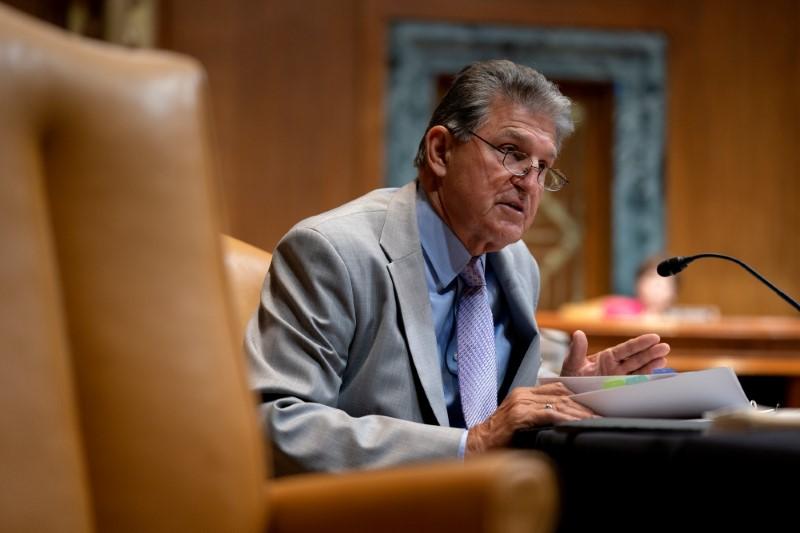With the White House still in talks on a bipartisan infrastructure bill that focuses on core infrastructure needs, Sen. Joe Manchin (D-W.Va.), who favors bipartisanship, said on Tuesday that he’s supportive of going forward with a larger infrastructure bill that received zero Republican support, but that it shouldn’t be tied to the bipartisan one.
Manchin last week indicated that Democrats will need to use the reconciliation process to move their multi-trillion dollar infrastructure bill forward mainly because GOP members are unwilling to budge on the 2017 tax bill changes that are included in it.





